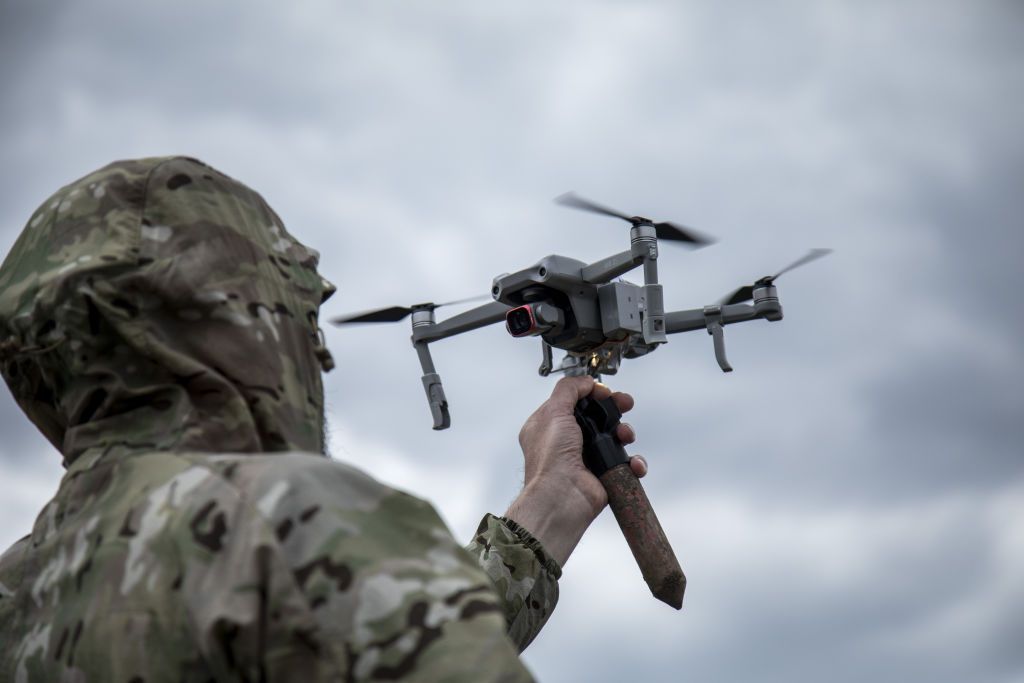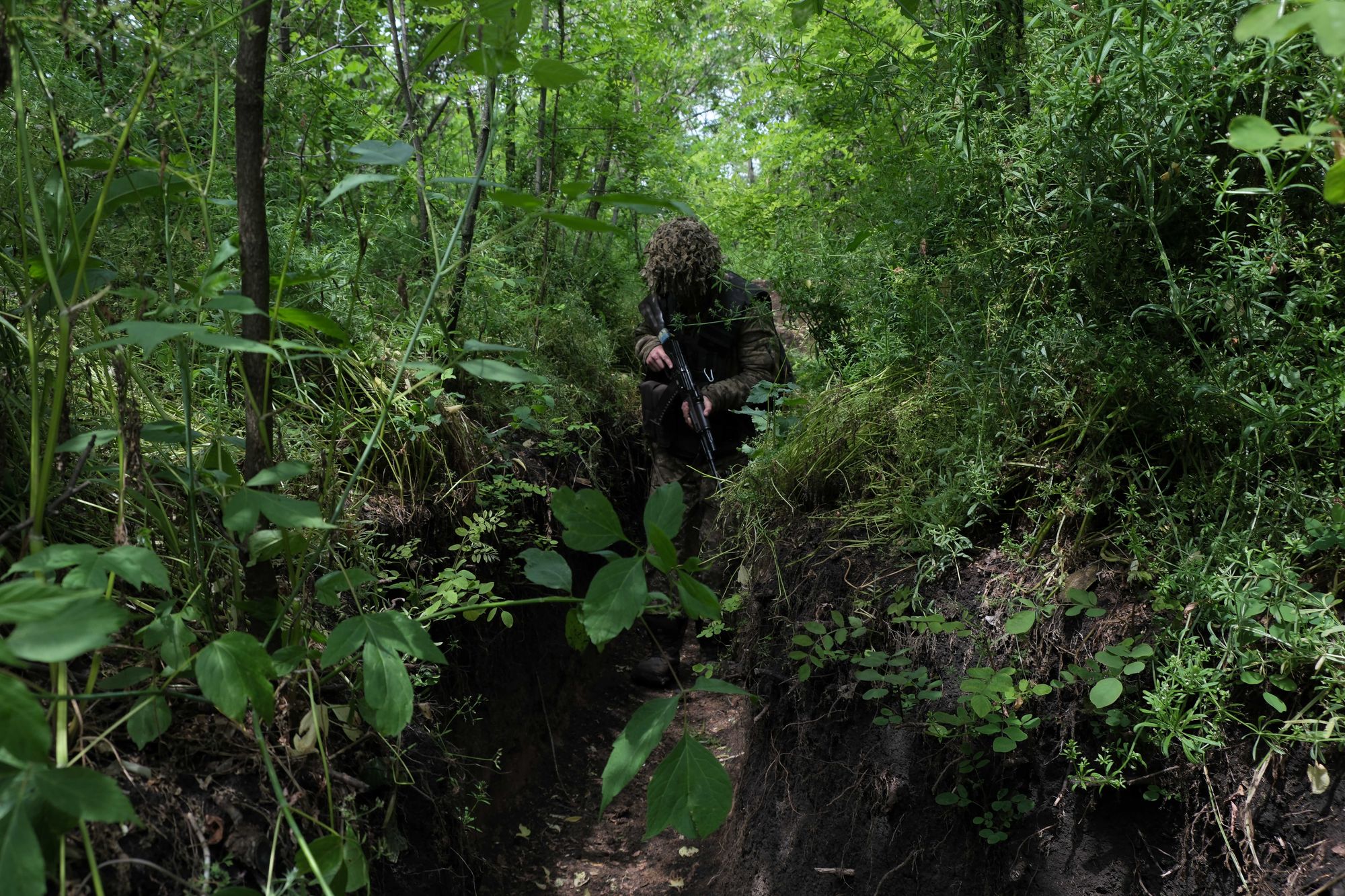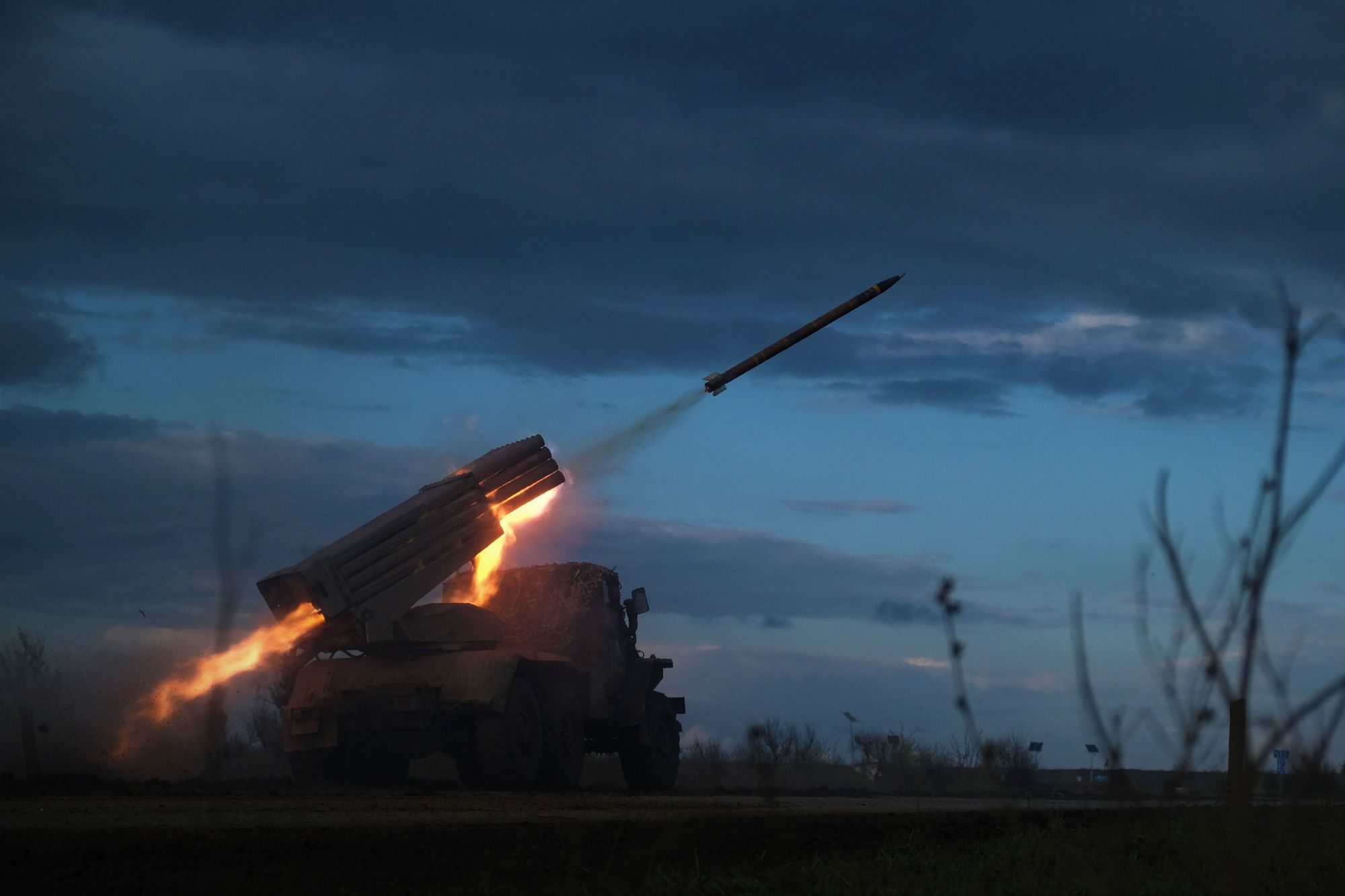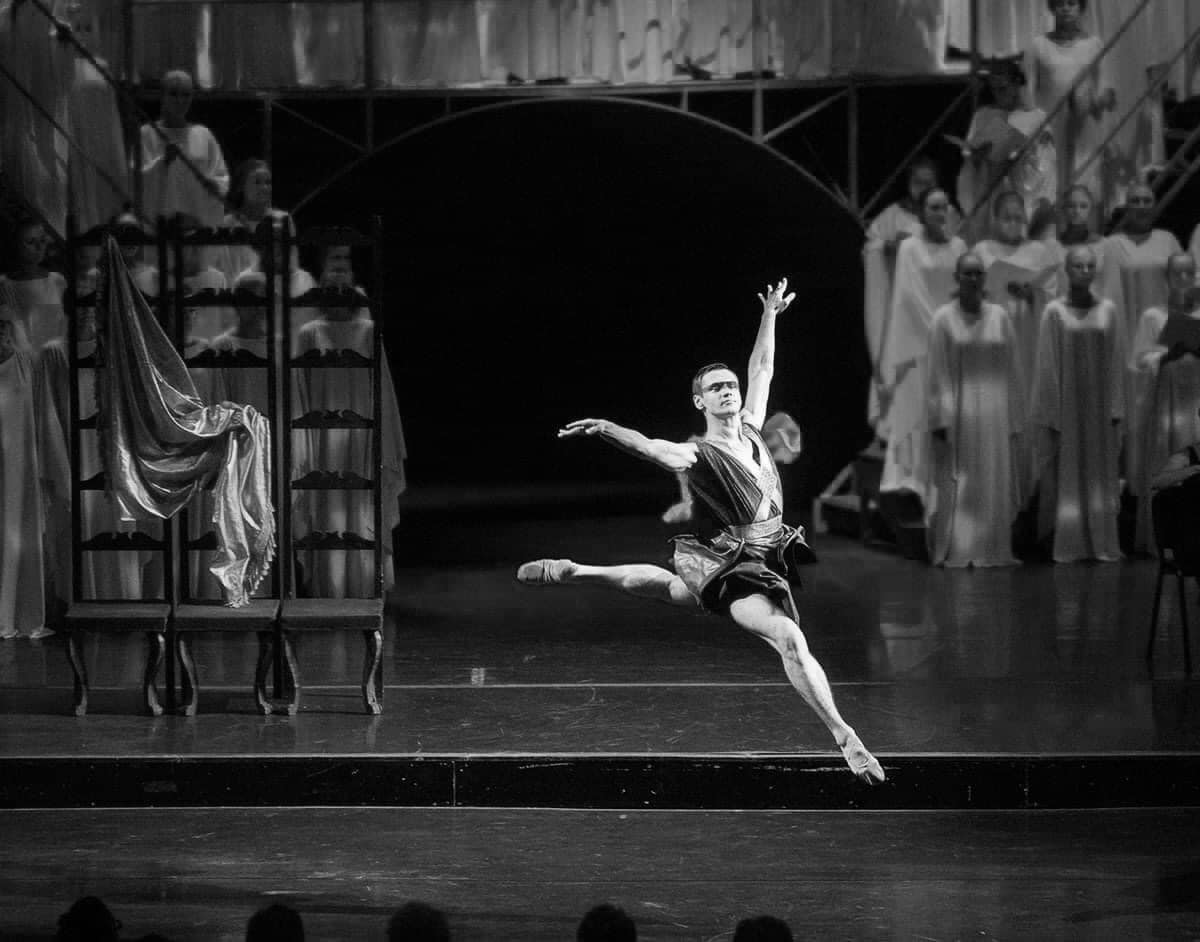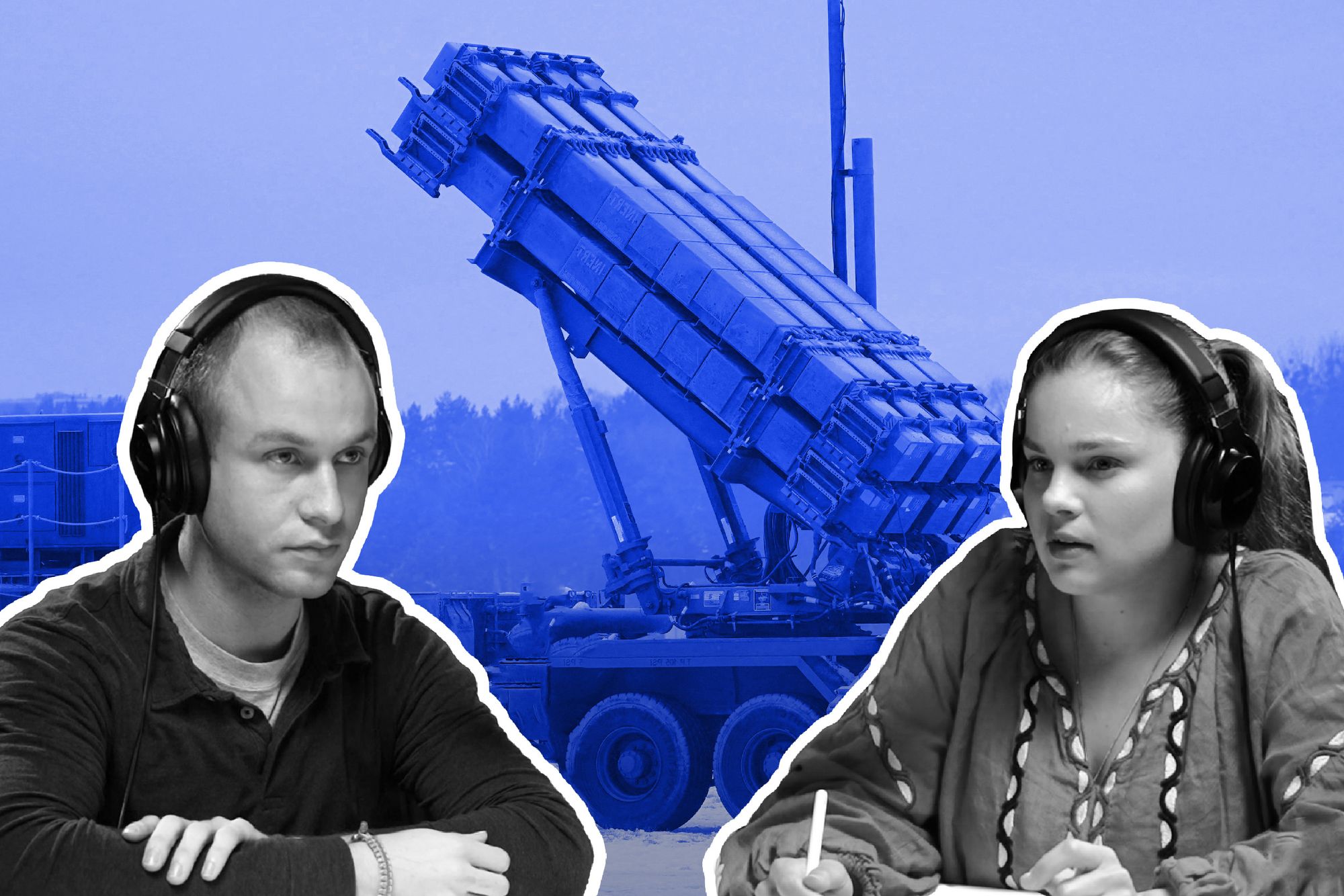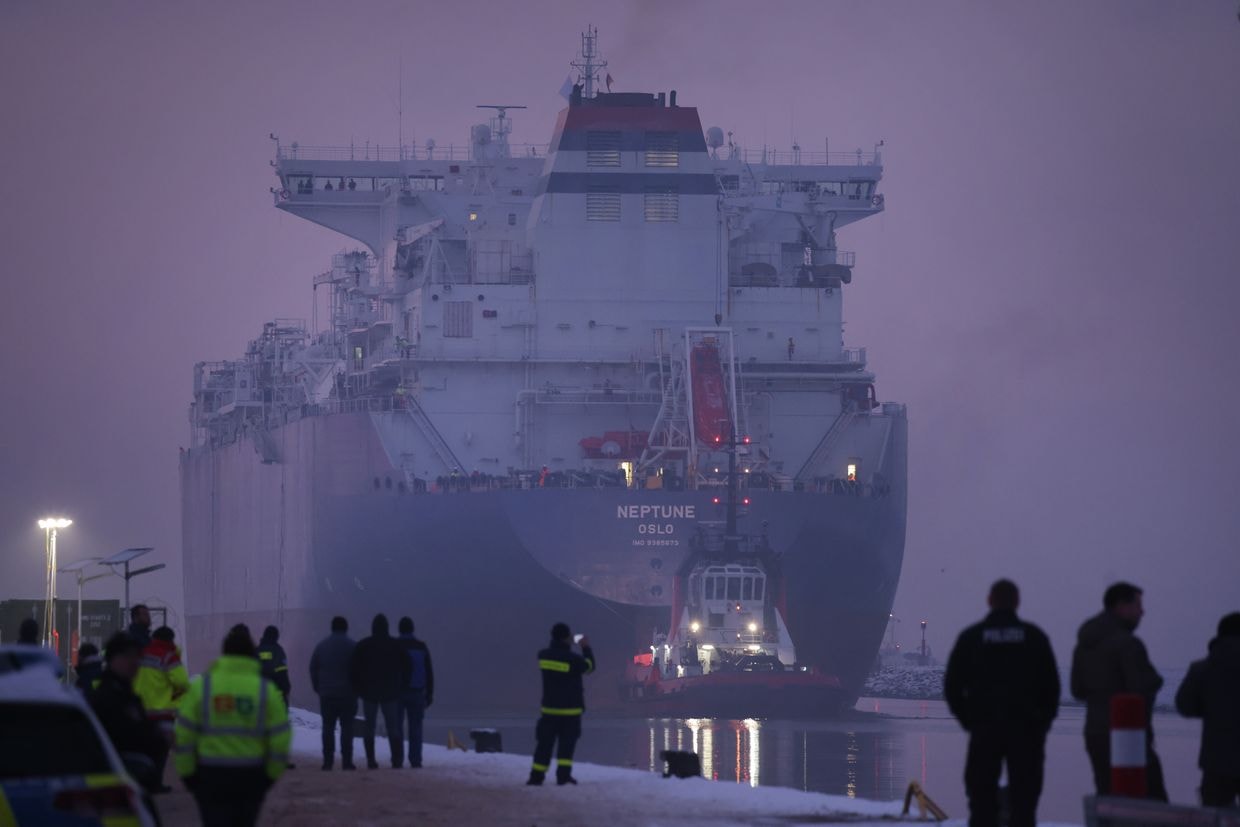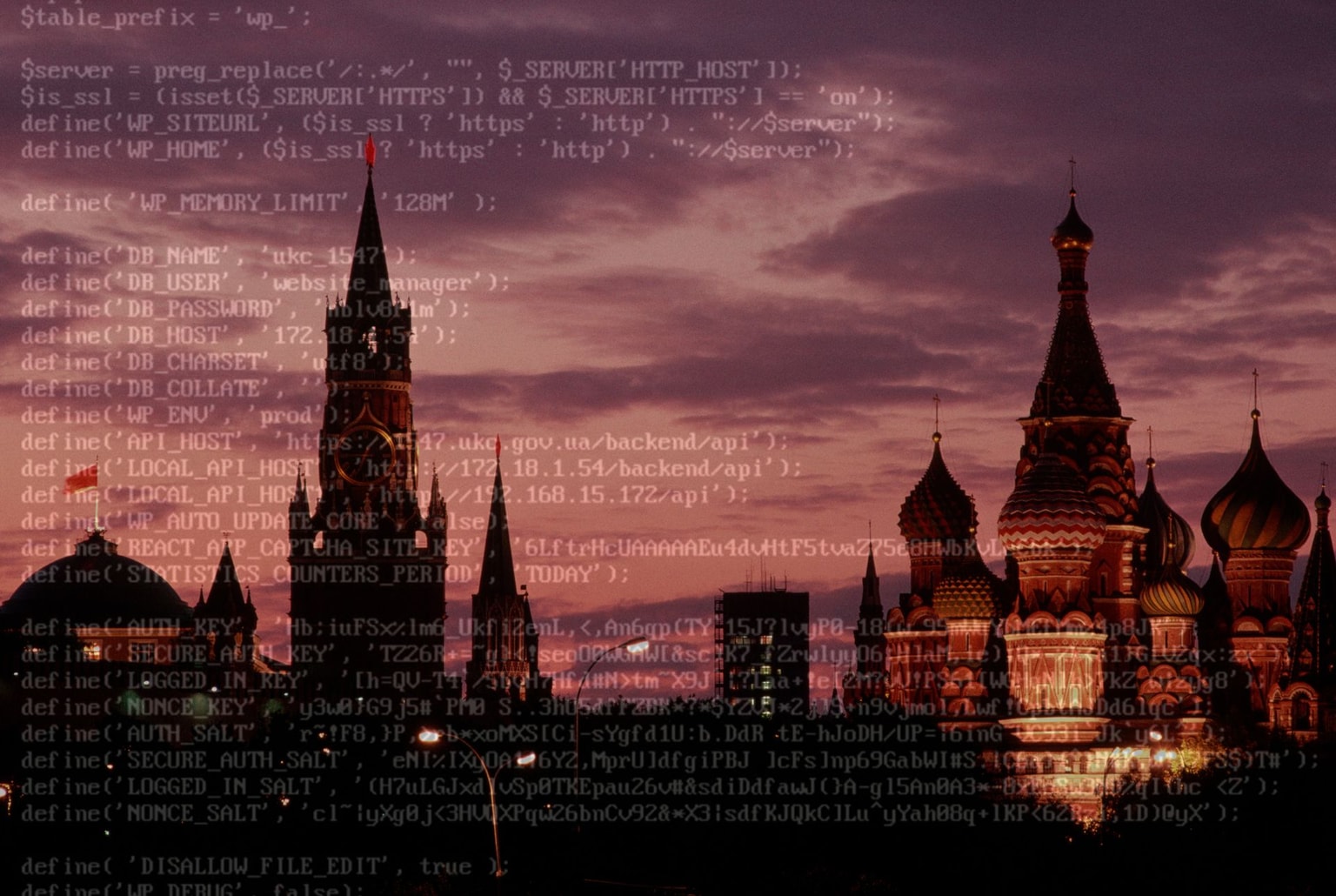Retired US General Petraeus: ‘Now it's inevitable – we should give the ATACMS’

The Kyiv Independent interviewed retired U.S. General David Petraeus on the sidelines of a security conference held by the Cipher Brief in Kyiv on May 31.
Petraeus is a four-star U.S. general who has commanded two wars. He has headed multinational forces in Iraq and Afghanistan, and has served as director of the CIA in 2011-2012.
Petraeus, who has been to Ukraine many times even before the start of Russia's full-scale invasion in 2022, has shared his views on the current state of the war, including the recently finished Battle of Bakhmut and the anticipated counteroffensive of Ukrainian troops.
The Kyiv Independent: We are talking at what may become a pivotal moment in the war. The Battle of Bakhmut has just ended, and the counteroffensive is about to start. What is your take on where we are now?
Gen. David Petraeus: This is a moment of transition in the war. It comes after the Russians failed to achieve the objectives of their winter offensive. They barely were able to take Bakhmut, where the Ukrainians described it as a mousetrap for enabling the killing of very large numbers – tens of thousands, reportedly, of Russian soldiers…and the wounding of many, many more.
And that, of course, came after Russia had lost the battle of Kyiv, the battles of Sumy and Chernihiv, and ultimately the Battle of Kharkiv. And then the successful – very impressive – fall offensive by Ukrainian forces on the south of Kharkiv (Oblast).
And then the very skillful fall campaign that forced the Russian forces that were west of the Dnipro River to withdraw from that portion of Kherson (Oblast) by isolating those forces, by taking out the logistical support depots, headquarters, reserve force locations, barracks – all of that – so that they had no choice but to withdraw.
And now of course, the Ukrainians have been developing over many, many months the additional brigades – publicly known, six armor brigades, plus many additional brigades of other types – to enable Ukraine to carry out the counteroffensive.
This counteroffensive is going to attack Russian forces that are significantly depleted. They've taken very heavy losses. They've been in combat in many cases for a year or more, continuous, in the lines. They're not doing unit replacement – which is what you should do. They're not pulling their units off to reconstitute them after they take losses. They just push poorly trained and equipped individual replacements into them.
They're not well-disciplined or well-led. In fact, it's well known that the command culture is very directive, very top-down, and frankly, very abusive. So you don't have the small unit cohesion and discipline that is required to execute what they're going to have to do, which is they will have to withdraw under Ukrainian pressure, to their defensive positions.
On the other hand, the Ukrainian forces have been training for many months. They are well disciplined. They are well-led, and they're well-equipped now, with Western tanks and infantry fighting vehicles.
I believe (Ukrainians) will achieve сombined arms effects.
These are tanks supported by infantry that keep the anti-tank guided missiles from hitting the tanks, using artillery and mortars to keep the enemy’s head down. Drones that are providing precision strike opportunities using the precision artillery and rockets and missiles that have been provided to Ukraine.
Electronic warfare to jam the single-channel unencrypted HF radio communications of Russia that have proven so inadequate so far which is why they had to go to cell phones and stuff, and with engineers integrated into the forward elements so that they can reduce the obstacles, in other words, literally breach. This is very complex. You have to use smoke artillery mortars to keep the enemy's head down while you're physically pulling this apart – defusing explosives, de-mining, and reducing improvised explosives, etc.
Air defense is right up with the lead elements to make sure that Russian attack helicopters and planes can't provide close air support and all of it.
It’s very complex and it needs a very good command and control. And you have to orchestrate this; it's a bit like a symphony. You have to have all of the different pieces play their part.
Do you think that the Ukrainian commandment has proved it’s capable of creating this symphony?
Yes, very much so. And Ukraine has – over the years, but particularly since the beginning of this phase of the war – fostered initiative in a way that was not common in the old Soviet system. The Soviet system was “you do what you're told.”
The initiative is where you haven't been told something, but you do the right thing, and we used to say: “In the absence of orders, figure out what they should have been and execute aggressively.” That's what we tried to promote and that's what I believe is the essence of the new Ukrainian army and military.
Obviously, the ground has to dry a bit more. The ground has to be very firm. So those very heavy track vehicles, tanks – 60 tons and so forth – can go off-road without being mired, without getting stuck.
Ideally, you could push wheel vehicles over as well, so that the logistical supports aren't road-bound.
That was the Achilles heel of the Russian forces attacking Kyiv. They couldn't get off the roads – because of the terrain, the forests, the obstacles, the water, but also they weren't very good. And then you stop them, and then you just pick off the fuel trucks. Then they just ran up and down and, eventually, they had no alternative to having to withdraw leaving behind countless weapon systems and vehicles.
So when this happens, I believe that the Russian forces are going to crumble. I've seen what happens when you achieve combined arms effects.
That's what we did during the fight for Baghdad, and it's terrifying for the enemy – if you get this working, if you get the momentum, you get the sheer shock of this – they will not be able to stand in the face of this any more than they did in the Kharkiv offensive. But this is so much different because you didn't have all of the follow-on forces.
Here, when the lead brigade or brigades come, after 72 or 96 hours you can't go farther. You've also taken some losses. You've lost some systems, you need to actually reconstitute, and resupply the unit. When that happens, there will be follow-on forces that can push through. And I believe that's what's going to happen.
Then, the Russians have to respond to this. They have to try to reconstitute defensive lines, then maybe you thin the lines elsewhere and maybe now there are opportunities that can be pursued elsewhere as well.
I think that's a realistic assessment of what will happen. It’s also, obviously, a positive assessment of what's going to happen.
And then the question is how broad is this. How can you affect this across a larger front, keeping in mind that we're talking about a front line that's 2,000 kilometers. It's about exploiting the capability, capitalizing on this, and maintaining the momentum.
Of course, the general expectation is that the counteroffensive will take place in the south and it is assumed that the goal for this counteroffensive is to disconnect the occupied territories in eastern Ukraine from Crimea. Do you think that Ukraine has a realistic chance of achieving that?
I wouldn’t speculate about where the counteroffensive may take place.
Various leaders have publicly stated that they want to cut the ground line of communications that connects Russia to Crimea. You can do that in various locations and various ways, and I won't speculate on that. But I think that is actually achievable.
Then, the question is how close can you get to the actual demarcation of Crimea in order to isolate it in the way that Ukrainian forces isolated the Russian forces that were west of the Dnipro River in Kherson, noting that this is a vastly bigger, vastly more challenging and vastly more complex task.
I think it’s the appropriate objective, and I think that it is achievable. And then, the question is, how can you further isolate Crimea? And can that put sufficient pressure on Russia, that now you have a whole new dynamic in the war?
Do you think it is possible for Ukraine to militarily liberate Crimea? And should Ukraine do it?
I don't think that's the right question. I think the question is rather, “How can Crimea be liberated?” That is, certainly, a legitimate objective. But the way that is done might not be the obvious way. You know, an amphibious assault or something like that. I think there are various ways that you can force that. I don't want to get into the details of this.
Let’s look back at Bakhmut. It was such a huge thing for all of us here. Nearly everyone in Ukraine knew somebody who was killed or injured near Bakhmut in these months. Do you think that, strategically, it was the right decision for Ukraine to hold on to Bakhmut for so long, at such a high price?
Absolutely. They made Russia impale themselves on every single building and geographic feature in Bakhmut. 20,000 killed Russians – it’s not inconceivable.
I mean you think about Prigozhin’s various speeches and videos. He showed dead bodies and all the rest of this. And then multiply that probably four times for seriously wounded.
So you're talking about many, many tens of thousands if not a hundred thousand Russian soldiers that had to be evacuated – killed or seriously wounded. And that is a colossal cost.
And clearly, the Ukrainian losses were significant. But the advantage of the defender is so great. The usual rule of thumb in the military is that you have to have a five-to-one advantage to attack in an urban area to successfully take it. You can make the enemy pay an enormous price and that's what Ukraine has done. So I do think very much that this was the right move.
And now, of course, the Wagner Group has been rendered, essentially, combat-ineffective. It has to be reconstituted. They're literally having to pull the Wagner Group off the front lines or replacing them with less capable forces.
I think that Bakhmut will be vulnerable. Remember how it looked as if the Russians were trying to encircle the Ukrainians. I think the Russians now should be worried about being encircled themselves.
That's what Ukraine has been saying recently – that its troops push to encircle Bakhmut.
Ukrainians are retaking the flanks, and some of this is the high ground. The Russians are either going to have to withdraw, or they may get encircled at some point.
The Russians have very modest-sized reserve forces. Yes, they continue to bring in new replacements and try to form new elements and so forth, but it's not the kind of coherent process that Ukraine has done with the painstaking building of entire brigades of 3,350 troops and all of the associated combat support and combat service support systems.
There have been suggestions in the press that the U.S. intelligence is pessimistic about the counteroffensive. Do you think it's a widespread pessimism?
I think that a lot of analysts, including those who hold fort on television, learned that you can't go wrong by being pessimistic. Because if it doesn't work out, well, they all say: “Said so!” And if it does work out – well, they don't care, because everyone forgets about it.
And I think, frankly, that there's a degree of caution that is almost cultural to certain analytical circles.
We'll see what happens. There are intangibles here. One that I have not mentioned is the state of Russian morale, which has to be quite low. And then on the other side the state of Ukrainian morale, of soldiers, who are fighting their war of independence, who are going to become known as Ukraine's greatest generation.
Those who served in the U.S. military during World War II – have often been described as America's “Greatest Generation.” I think that, in time, those who are serving Ukraine right now – in the military, but also in other capacities – in government, and even in industry and civil society – will also come to be regarded as Ukraine's “Greatest Generation.”
You can feel it in Kyiv. The people are just…they're spitting in the face of adversity. It’s as if they’re saying – your drones aren't going to keep me off the street. They're not going to keep me from going to work. They're not going to keep me from even going out at night and enjoying the nice spring weather.
Yes, they're defiant. Yes, they're determined. But more importantly – they're capable. And there they have this Ukrainian capacity to innovate, that, I think, is going to transform the country after the war as well.
You mentioned the guarded approach among analysts. Do you think that one of the components of this guarded approach is that there is still a belief in Russia's military greatness?
I don't think it's a belief in Russia's military greatness. I think it's an awareness that Russia has more than three times the population size of Ukraine.
Despite all of the sanctions, export controls, and so forth, the economy is still continuing on. Yes, it's in recession and it's been set back a decade, but they still have a very considerable capacity.
In the long term, Russia's got big problems. It's lost its best and brightest. It had more military-age males leave the country than report to the conscript stations during last fall’s mobilization, but again, it is still a – quote – “great power.”
I think the real, sobering aspect is an awareness that Vladimir Putin has not yet been convinced that he will not be able to out-suffer the Ukrainians, the Europeans and the Americans.
When Putin looks in the mirror, he still doesn't see a leader who's made a catastrophically bad decision for his country. He sees a strong resolute leader. Whose people he believes will be able to out-suffer everyone. We have to convince him that it's wrong. And that’s the real challenge.
You of course know that there's been a lot of frustration in Ukraine over the timeline of the Western countries providing military aid. It's always like – we can't give you the tanks, then we give you the tanks. We can’t give you F-16, now we give you F-16s. And now we’re waiting for ATACMS.
I actually share the frustration of the Ukrainian people in that regard.
But I also think we have to acknowledge that $38 billion worth of arms, ammunition and other material, and assistance is beyond comprehension. To be fair, Ukrainian leaders are always very appreciative of that, in their statements, right before they say: “But by the way, we still need this.”
The security of NATO now rests in Ukraine, and this is another one of those issues that I think is inevitable, and that we should acknowledge that it's inevitable rather than, as we have on several occasions, delay making a decision.
It was inevitable that we were going to give M1 tanks to Ukraine. It was inevitable that we were going to give the HIMARS. It was inevitable that we were going to give the long-range. It was inevitable that we were going to have to provide Western fighters.
I think now it's inevitable – we should give the ATACMS.
Obviously, there are political dynamics in individual European countries, in the EU and NATO collectively, in the United States, where people will say: “Oh, but what about this? What about that?”.
We have to be aware of these challenges. But when this (the counteroffensive) succeeds, it will enable the sustainment of the effort in individual European countries, Europe collectively at the EU and NATO level, North America, and so on. It's also very important that there be a concrete commitment at the Vilnius Summit on July 11.
It's inevitable that Ukraine has to become part of NATO and I hope that in Vilnius, there will be an acknowledgment. It's not going to say – you're immediately in NATO or that there's a firm timeline. But there needs to be a communique that gives hope to the Ukrainian people.
Some countries have said that providing more aid to Ukraine is going to deplete their own security capacity. But isn’t the West getting the best possible deal? Providing the aid and having someone actually fight this global threat, without any of your own people dying.
In many respects, Ukraine is fighting NATO's war for NATO. I mean, who is the threat to NATO? Obviously, there's only one threat to NATO at this point in time, at least in the neighborhood. And that threat is very much degraded and depleted in ways that will set it back by over a decade.
Just the confirmed loss of tanks is now over 2,000 by oryx.com. The (actual) losses are actually much greater than that.
I've often noted publicly that the greatest gift to NATO since the end of the Cold War is Vladimir Putin. And the irony of this particular situation is that Putin set out to make Russia great again, and what he's really done is make NATO great again. He's actually made NATO greater with the addition of one crucial member Finland, which has very capable forces.
They served under my command in Afghanistan. Sweden will follow now. And another irony is that no one has done more for the cause of Ukrainian nationalism. No Ukrainian nationalist political figure has done as much for that cause as Vladimir Putin.
How do you see Ukraine's victory in this war? What kind of victory is acceptable for Ukraine, and for the West.
Well, my hope would be I think quite similar to what the Ukrainian leaders’ hopes are – that when this war is over all of Ukrainian territory has been liberated, and Ukraine is on path to being a NATO member, the reconstruction effort is ongoing and succeeding not just because of the achievement during the war, but also because of the security guarantee and the work that has been done to achieve the reforms that were required before the war to make Ukraine an attractive investment destination.
And do you see a possibility of this war ending next year, or do you think it's more likely to go on for longer than that?
I think it's impossible to answer that question, but I do think that the counteroffensive is going to achieve impressive gains and will set Ukraine on a path in a variety of different ways not just on the battlefield, but in the minds of the Ukrainian people, in the minds of Europeans and Americans and the rest of the world, that will enable it to ultimately achieve what it is that I've described as victory for Ukraine.


